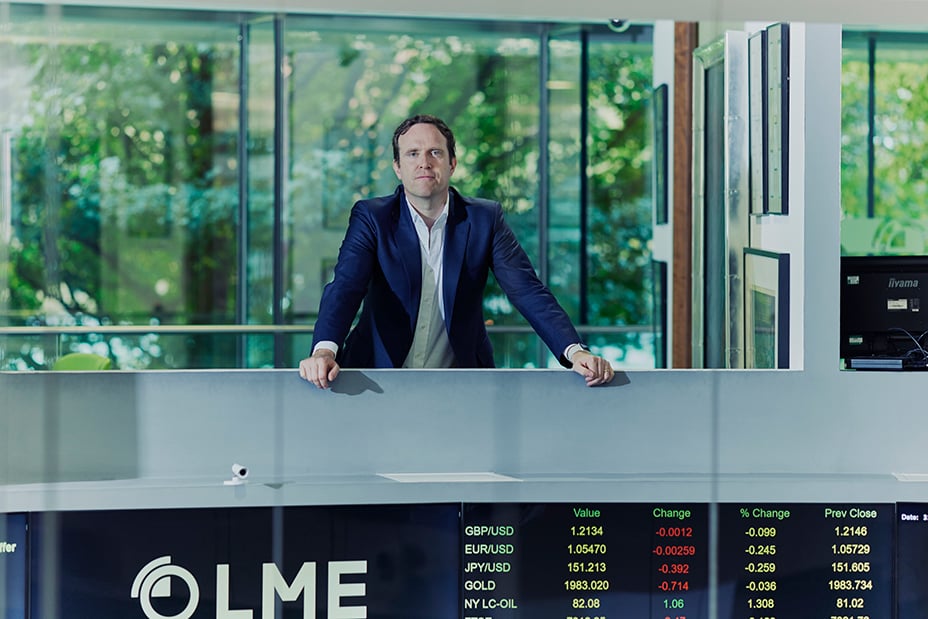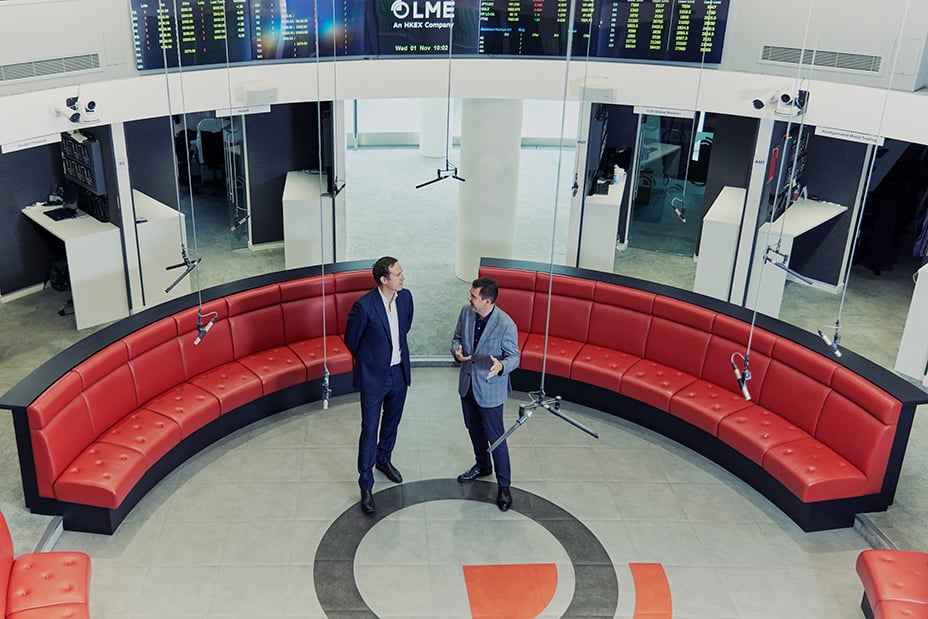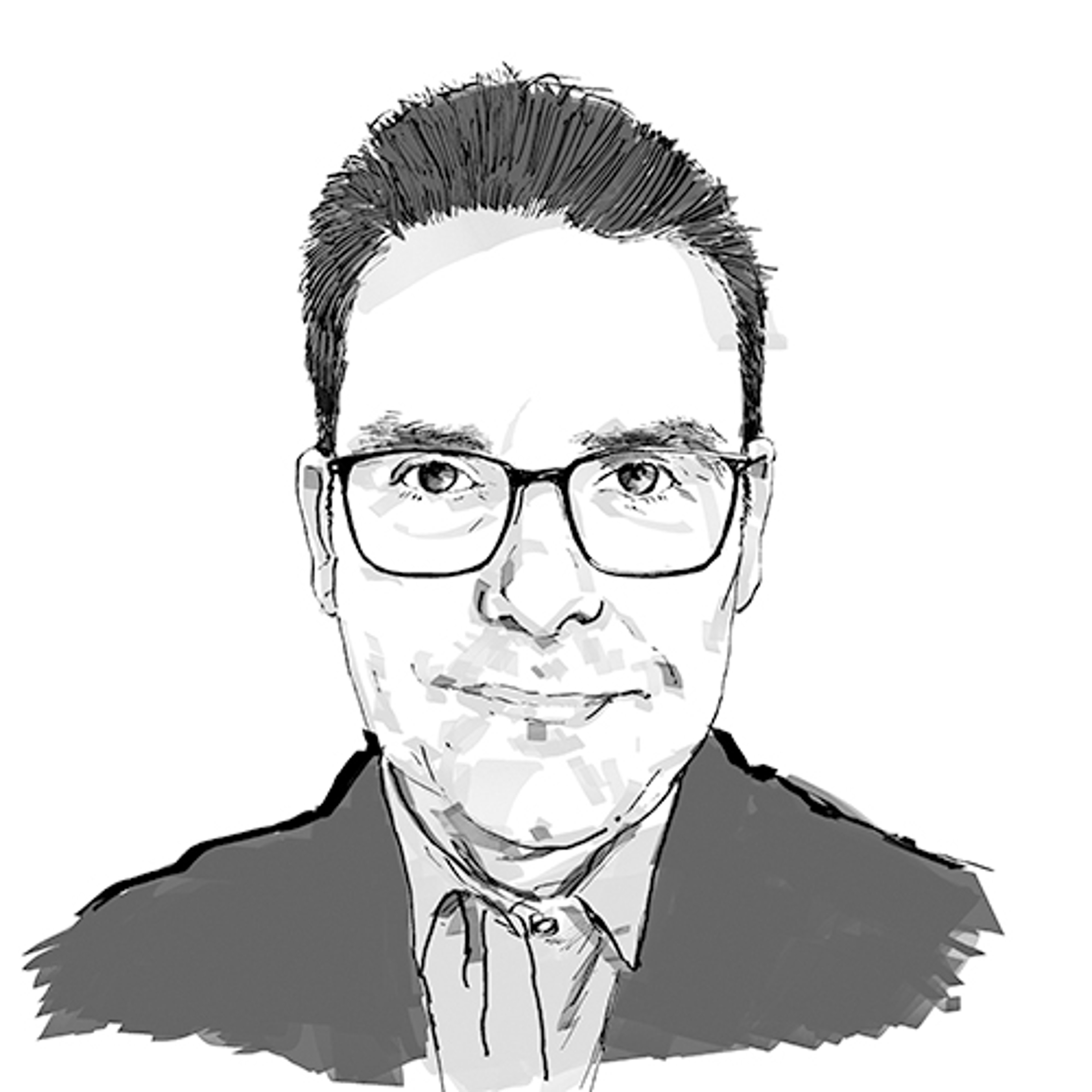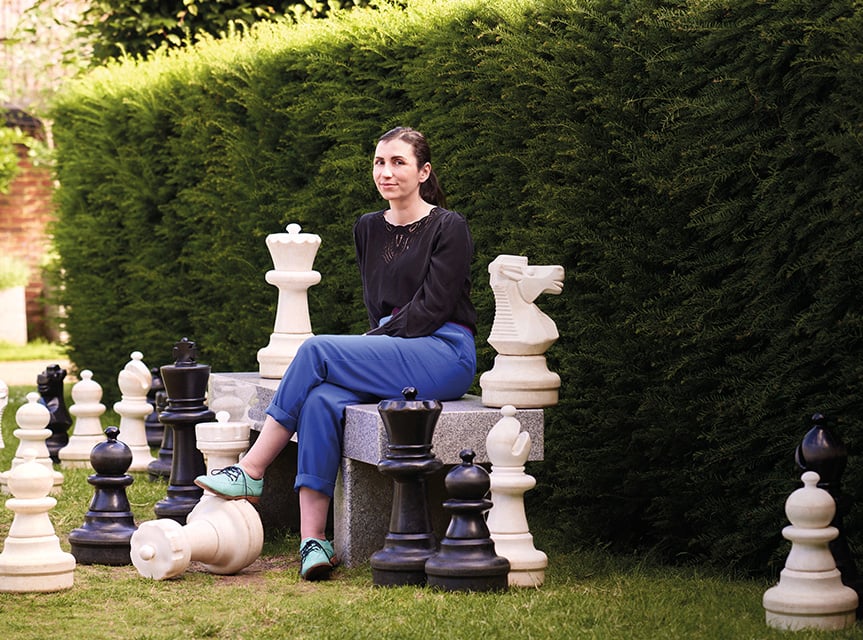
It may seem strange to be inspired by a pencil, but that’s what gave Ed Conway the idea for Material World: A Substantial Story of Our Past and Future.
Or rather, the economics and data editor for Sky News was inspired by Leonard Read’s 1958 essay, I, Pencil, which explained all the elements and processes that went into making this humdrum object: the wood, the graphite, the eraser, the metal that encases the eraser and so on. Simple objects, in other words, can be complicated to make.
“It made me want to know how everything else is made,” says the largely self-taught economist.
“Part of me felt overwhelmed and baffled by this world of different products, and we have no idea how they’re made. Economics isn’t very good at explaining that. I felt increasingly disconnected.”
So, Conway applied the I, Pencil approach to the near-miraculous objects and infrastructure we all take for granted, identifying the key materials – sand, salt, iron, oil, copper and lithium – essential to their creation.
We meet, appropriately enough, at the London Metal Exchange, encircled by screens quoting the latest prices for copper, steel, nickel and more – materials that have built our cars, railways, tower blocks, electric motors and batteries.
The book is stuffed with dizzying facts and historical anecdotes. Did you know that to make just one gold bar we blow up 5,000 tonnes of rock and earth? And that, in 2019, we extracted more materials from the earth than humankind did throughout its entire history up to the year 1950?
The scale of China’s activities alone beggars belief. It is now the world’s largest steel producer, accounting for roughly half of total global output. In the last two years “China has made more steel than the UK has since the industrial revolution,” Conway tells us. Its share of global cement production is even larger, and it’s also the world’s biggest refiner of copper and rare earth metals.
Interdependence
While the scale of these activities is awe-inspiring – if not terrifying – the complexity of the supply chains that make up our material world is also breath-taking.
To highlight just one story, tracing every step in the manufacture of silicon chips was a “wondrous and amazing” journey that gave Conway a more profound understanding of just how interdependent – and fragile – our global economy has become.
Starting with the silica in sand, the journey involves mining, refining, chemical treatment and manufacturing. These many processes are carried out by a web of companies across the world, resulting in a tiny product that can contain billions of microscopically small transistors, “smaller than the coronavirus,” etched onto the purest silicon wafers using a printing process called extreme ultraviolet lithography.
These semiconductors are now in pretty much everything, from electric toothbrushes to cars, smartphones to satellites. And Moore’s Law, which stipulates that the number of transistors that can fit on a chip doubles every two years, could continue to operate for “another five to ten years”, says Conway, as electronics moves into the realm of quantum physics.
But the fantastically high-precision lithography machines used cost several hundred million pounds each and there is only one company in the world, ASML in the Netherlands, that can make them. Meanwhile, Taiwan’s TSMC, a semiconductor manufacturer and now one of the most valuable and important companies in the world, exists under the threat of conflict.
One broken link in this complex chain could bring much of the global digital economy crashing to its knees – as nearly happened during the Covid-19 pandemic.

The progress paradox
Writing the book gave Conway a new-found appreciation of the material world, of mankind’s inventiveness, ingenuity and perseverance – often in the pursuit of profit. But it also made him more acutely aware of the cost of this Anthropocene era.
Visiting the gargantuan Chuquicamata open pit copper mine in Chile was “like staring into the Grand Canyon – it’s such a big hole – you’re looking down more than a kilometre. And to stand on its edge and realise it’s an entirely human creation, and then realise that we’re going to need another three of them every year to satisfy our demand for copper in the future – it’s crazy.”
Pollution and greenhouse gases, primarily the result of burning wood, coal, oil and gas, are making life unbearable for millions, while habitat loss is driving hundreds of species to extinction. Potentially, this progress now poses an existential threat to humanity.
Conway reminds us that to combat global warming and reach net zero – the point at which we take out as much CO2 from the atmosphere as we generate – by the arbitrary date of 2050, we’re going to need millions more tonnes of commodities to build the wind turbines, solar panels, batteries, electric vehicles, pharmaceuticals, fibre optic cables, semiconductors and artificial intelligence that will help us achieve this healthier and more sustainable world.
Reasons to be cheerful
Conway is optimistic that with materials science, AI, new sources of energy like nuclear fusion, new forms of energy storage like carbon capture and a shift towards recycling, we have the wherewithal to achieve climate change targets.
Wright’s Law, whereby product costs fall roughly 15 per cent each time production volume doubles, will apply equally to these new technologies, Conway believes. And, as this history of the material world proves, necessity is most definitely the mother of invention.
Read this book and you won’t look at any object in the same way again, from your coffee mug to your office block, your glasses to your painkillers. And you may find yourself, as Conway has done, pausing before pressing the ‘buy’ button and asking: “Do I really need this?”

Risk factors
The views expressed should not be considered as advice or a recommendation to buy, sell or hold a particular investment. They reflect opinion and should not be taken as statements of fact nor should any reliance be placed on them when making investment decisions.
This communication was produced and approved in December 2023 and has not been updated subsequently. It represents views held at the time and may not reflect current thinking.
All investment strategies have the potential for profit and loss, your or your clients’ capital may be at risk. Past performance is not a guide to future returns.
This communication contains information on investments which does not constitute independent research. Accordingly, it is not subject to the protections afforded to independent research, but is classified as advertising under Art 68 of the Financial Services Act (‘FinSA’) and Baillie Gifford and its staff may have dealt in the investments concerned.
All information is sourced from Baillie Gifford & Co and is current unless otherwise stated.
Important information
Baillie Gifford & Co and Baillie Gifford & Co Limited are authorised and regulated by the Financial Conduct Authority (FCA). Baillie Gifford & Co Limited is an Authorised Corporate Director of OEICs.
Baillie Gifford Overseas Limited provides investment management and advisory services to non-UK Professional/Institutional clients only. Baillie Gifford Overseas Limited is wholly owned by Baillie Gifford & Co. Baillie Gifford & Co and Baillie Gifford Overseas Limited are authorised and regulated by the FCA in the UK.
Persons resident or domiciled outside the UK should consult with their professional advisers as to whether they require any governmental or other consents in order to enable them to invest, and with their tax advisers for advice relevant to their own particular circumstances.
Financial Intermediaries
This communication is suitable for use of financial intermediaries. Financial intermediaries are solely responsible for any further distribution and Baillie Gifford takes no responsibility for the reliance on this document by any other person who did not receive this document directly from Baillie Gifford.
Europe
Baillie Gifford Investment Management (Europe) Limited provides investment management and advisory services to European (excluding UK) clients. It was incorporated in Ireland in May 2018. Baillie Gifford Investment Management (Europe) Limited is authorised by the Central Bank of Ireland as an AIFM under the AIFM Regulations and as a UCITS management company under the UCITS Regulation. Baillie Gifford Investment Management (Europe) Limited is also authorised in accordance with Regulation 7 of the AIFM Regulations, to provide management of portfolios of investments, including Individual Portfolio Management (‘IPM’) and Non-Core Services. Baillie Gifford Investment Management (Europe) Limited has been appointed as UCITS management company to the following UCITS umbrella company; Baillie Gifford Worldwide Funds plc. Through passporting it has established Baillie Gifford Investment Management (Europe) Limited (Frankfurt Branch) to market its investment management and advisory services and distribute Baillie Gifford Worldwide Funds plc in Germany. Similarly, it has established Baillie Gifford Investment Management (Europe) Limited (Amsterdam Branch) to market its investment management and advisory services and distribute Baillie Gifford Worldwide Funds plc in The Netherlands. Baillie Gifford Investment Management (Europe) Limited also has a representative office in Zurich, Switzerland pursuant to Art. 58 of the Federal Act on Financial Institutions (“FinIA”). The representative office is authorised by the Swiss Financial Market Supervisory Authority (FINMA). The representative office does not constitute a branch and therefore does not have authority to commit Baillie Gifford Investment Management (Europe) Limited. Baillie Gifford Investment Management (Europe) Limited is a wholly owned subsidiary of Baillie Gifford Overseas Limited, which is wholly owned by Baillie Gifford & Co. Baillie Gifford Overseas Limited and Baillie Gifford & Co are authorised and regulated in the UK by the Financial Conduct Authority.
China
Baillie Gifford Investment Management (Shanghai) Limited
柏基投资管理(上海)有限公司(‘BGIMS’) is wholly owned by Baillie Gifford Overseas Limited and may provide investment research to the Baillie Gifford Group pursuant to applicable laws. BGIMS is incorporated in Shanghai in the People’s Republic of China (‘PRC’) as a wholly foreign-owned limited liability company with a unified social credit code of 91310000MA1FL6KQ30. BGIMS is a registered Private Fund Manager with the Asset Management Association of China (‘AMAC’) and manages private security investment fund in the PRC, with a registration code of P1071226. Baillie Gifford Overseas Investment Fund Management (Shanghai) Limited
柏基海外投资 金管理(上海)有限公司 (‘BGQS’) is a wholly owned subsidiary of BGIMS incorporated in Shanghai as a limited liability company with its unified social credit code of 91310000MA1FL7JFXQ. BGQS is a registered Private Fund Manager with AMAC with a registration code of P1071708. BGQS has been approved by Shanghai Municipal Financial Regulatory Bureau for the Qualified Domestic Limited Partners (QDLP) Pilot Program, under which it may raise funds from PRC investors for making overseas investments.
Hong Kong
Baillie Gifford Asia (Hong Kong) Limited 柏基亞洲(香港)有限公司 is wholly owned by Baillie Gifford Overseas Limited and holds a Type 1 and a Type 2 license from the Securities & Futures Commission of Hong Kong to market and distribute Baillie Gifford’s range of collective investment schemes to professional investors in Hong Kong. Baillie Gifford Asia (Hong Kong) Limited 柏基亞洲(香港)有限公司 can be contacted at Suites 2713-2715, Two International Finance Centre, 8 Finance Street, Central, Hong Kong. Telephone +852 3756 5700.
South Korea
Baillie Gifford Overseas Limited is licensed with the Financial Services Commission in South Korea as a cross border Discretionary Investment Manager and Non-discretionary Investment Adviser.
Japan
Mitsubishi UFJ Baillie Gifford Asset Management Limited (‘MUBGAM’) is a joint venture company between Mitsubishi UFJ Trust & Banking Corporation and Baillie Gifford Overseas Limited. MUBGAM is authorised and regulated by the Financial Conduct Authority.
Australia
Baillie Gifford Overseas Limited (ARBN 118 567 178) is registered as a foreign company under the Corporations Act 2001 (Cth) and holds Foreign Australian Financial Services Licence No 528911. This material is provided to you on the basis that you are a “wholesale client” within the meaning of section 761G of the Corporations Act 2001 (Cth) (“Corporations Act”). Please advise Baillie Gifford Overseas Limited immediately if you are not a wholesale client. In no circumstances may this material be made available to a “retail client” within the meaning of section 761G of the Corporations Act.
This material contains general information only. It does not take into account any person’s objectives, financial situation or needs.
South Africa
Baillie Gifford Overseas Limited is registered as a Foreign Financial Services Provider with the Financial Sector Conduct Authority in South Africa.
North America
Baillie Gifford International LLC is wholly owned by Baillie Gifford Overseas Limited; it was formed in Delaware in 2005 and is registered with the SEC. It is the legal entity through which Baillie Gifford Overseas Limited provides client service and marketing functions in North America. Baillie Gifford Overseas Limited is registered with the SEC in the United States of America.
The Manager is not resident in Canada, its head office and principal place of business is in Edinburgh, Scotland. Baillie Gifford Overseas Limited is regulated in Canada as a portfolio manager and exempt market dealer with the Ontario Securities Commission ('OSC'). Its portfolio manager licence is currently passported into Alberta, Quebec, Saskatchewan, Manitoba and Newfoundland & Labrador whereas the exempt market dealer licence is passported across all Canadian provinces and territories. Baillie Gifford International LLC is regulated by the OSC as an exempt market and its licence is passported across all Canadian provinces and territories. Baillie Gifford Investment Management (Europe) Limited (‘BGE’) relies on the International Investment Fund Manager Exemption in the provinces of Ontario and Quebec.
Israel
Baillie Gifford Overseas Limited is not licensed under Israel’s Regulation of Investment Advising, Investment Marketing and Portfolio Management Law, 5755-1995 (the Advice Law) and does not carry insurance pursuant to the Advice Law. This material is only intended for those categories of Israeli residents who are qualified clients listed on the First Addendum to the Advice Law.
78412 10041015




